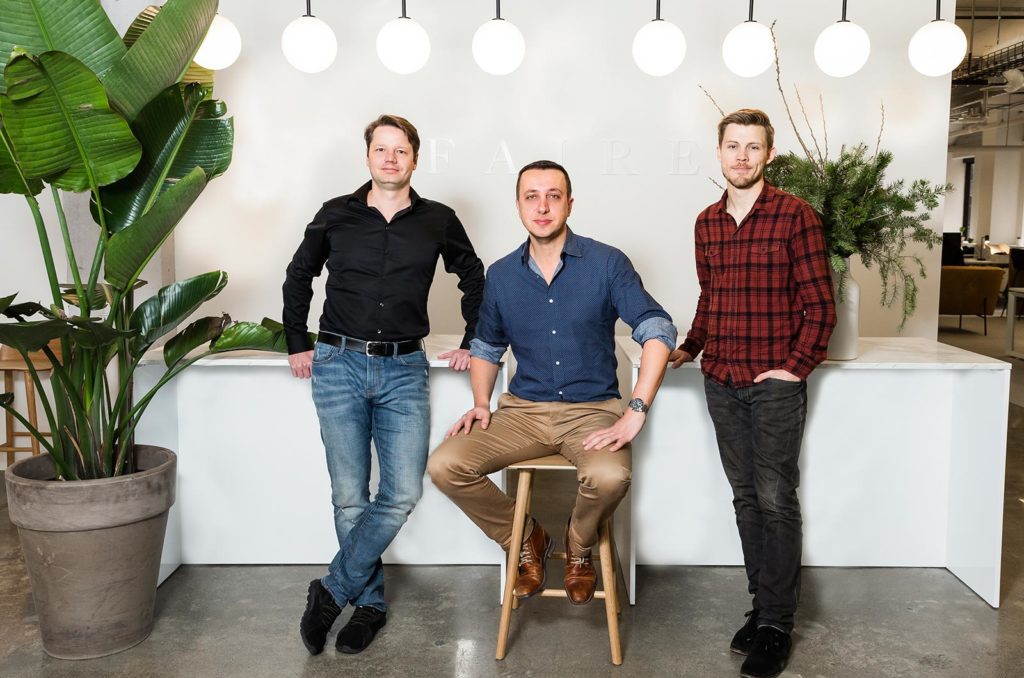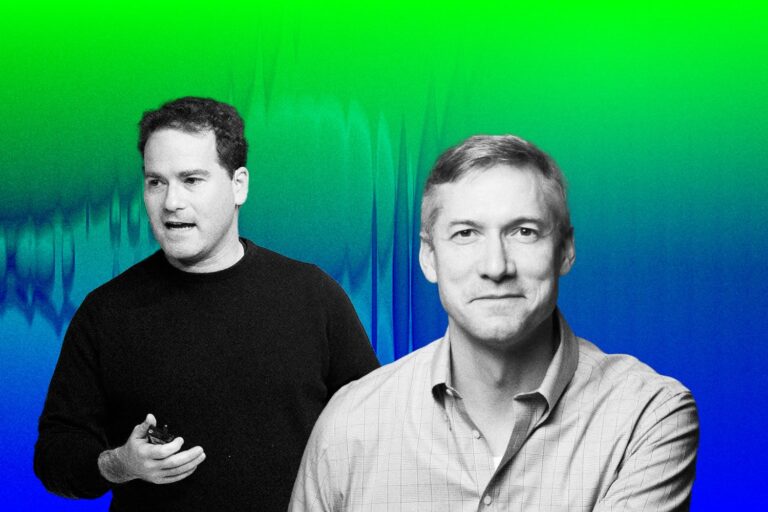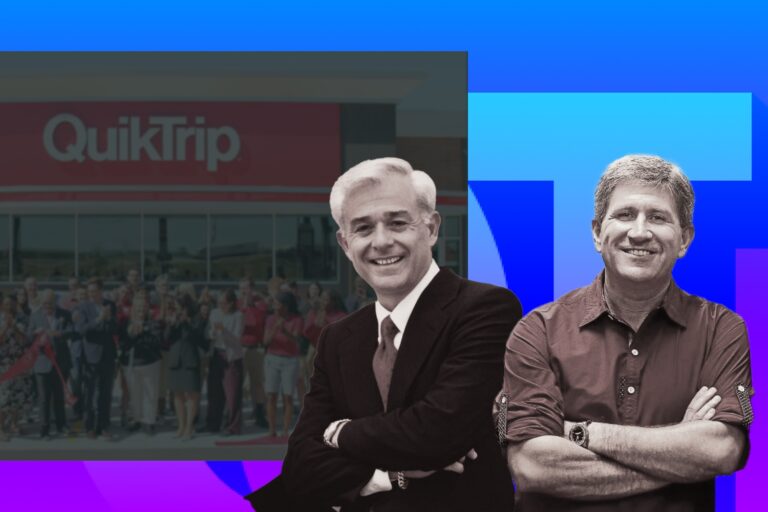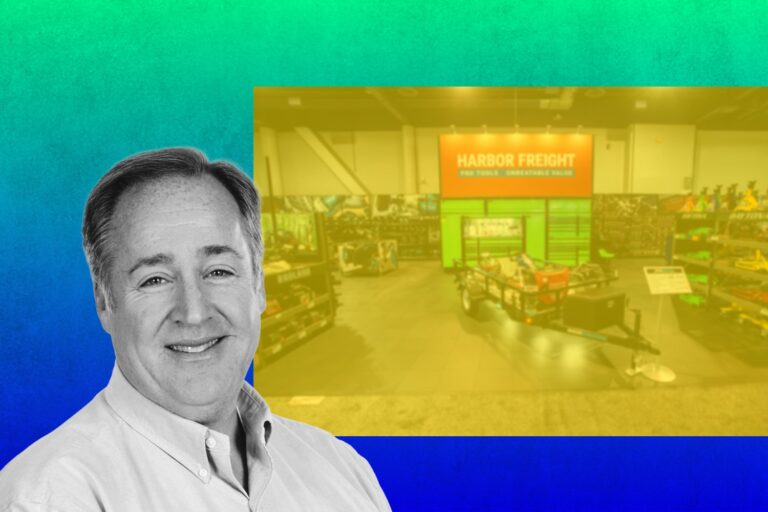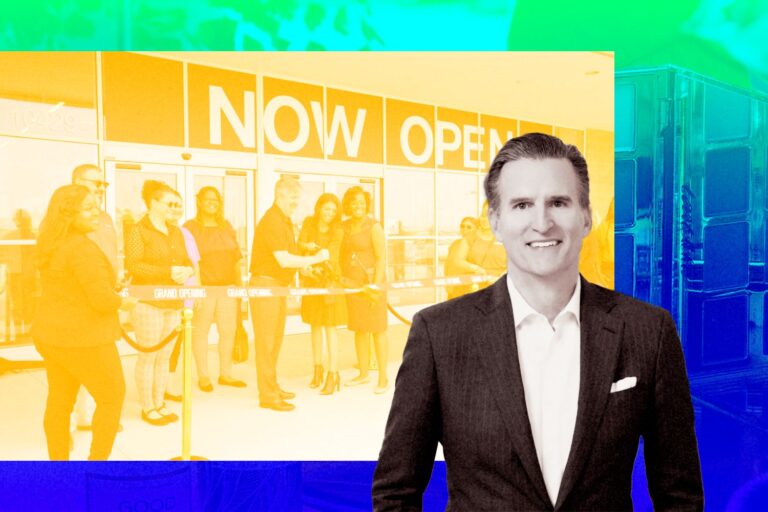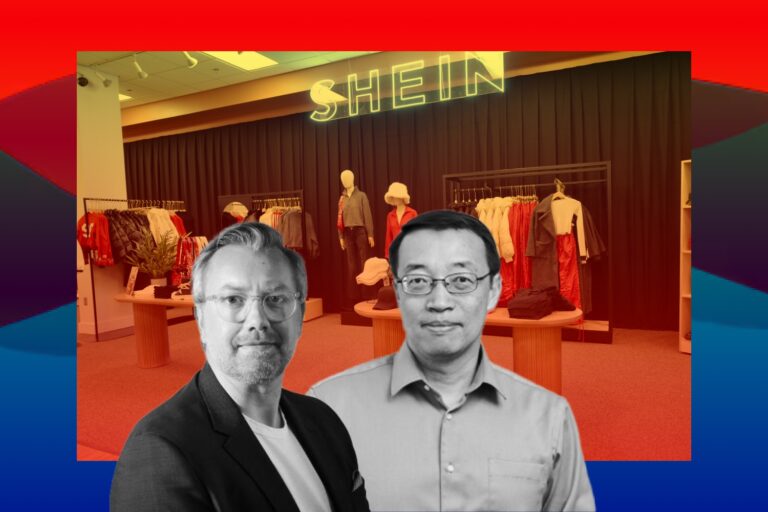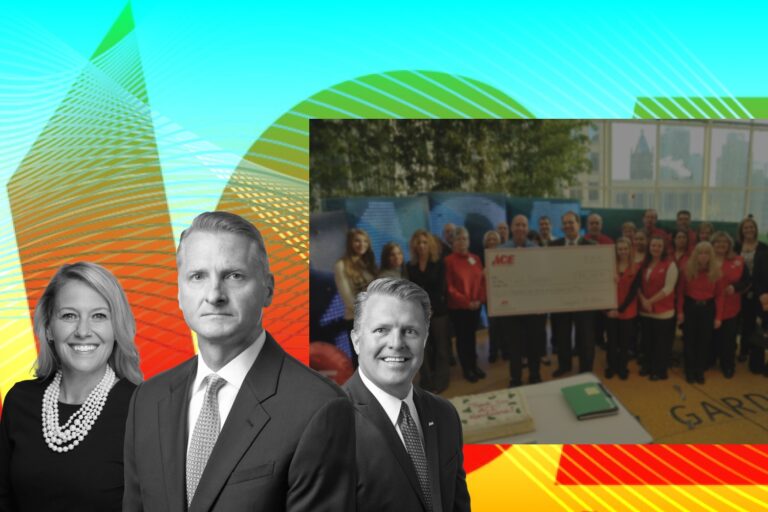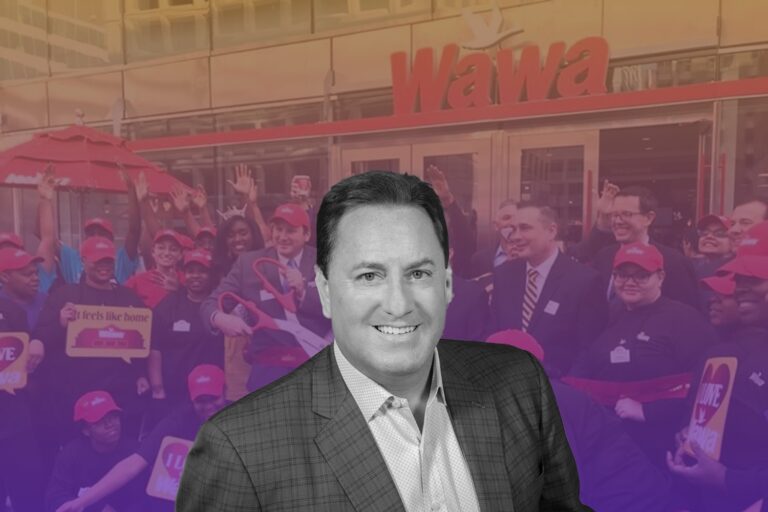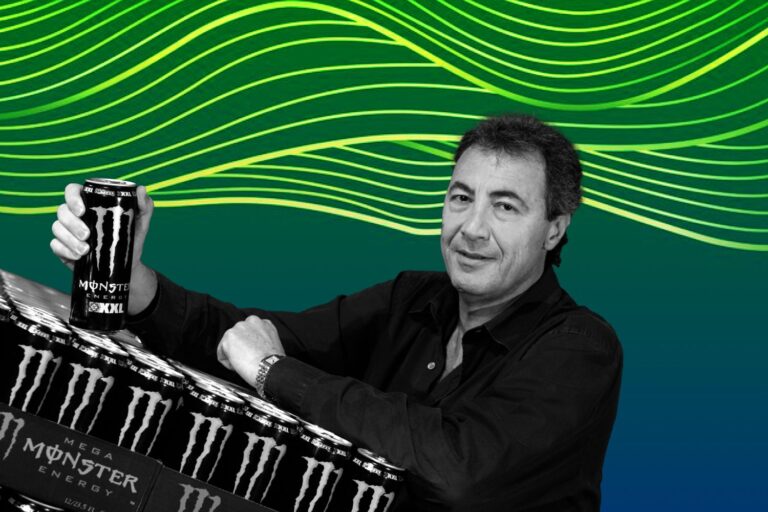Faire: Rescue Local Stores by Making Use of the Retail Gap Left by Amazon
We live in a world where big box stores dominate our shopping centers, where you can get almost any product with the click of a mouse or a tap on a screen, where same-day shipping is the norm.
Still, one startup knows small brick-and-mortar shops can keep up – and win out.
Faire is a wholesale marketplace that connects retail shops with independent makers across the U.S. Think of it as a beefed-up Amazon for store owners, where they can browse and buy unique, curated items that’ll keep customers coming back. Or like Etsy for business, where makers can showcase their products to stores that otherwise wouldn’t know they exist.
The Better You Understand the Past, the Better You Will Understand the Present
Founded out of San Francisco in 2017 as Indigo Fair, Faire was the brainchild of a trio of former Square employees: Max Rhodes, Daniele Perito, and Marcelo Cortes. Together, they helped develop Cash App, a mobile money transfer service that now has over 15 million active accounts.
That’s when two things happened.
First, Rhodes was working with umbrella maker Blunt to get their product on store shelves in North America. If you haven’t heard of the Blunt Umbrella, it’s exactly what it sounds like – an umbrella with rounded edges. No spikes, no corners, no poking.
But he struggled to get the attention of retailers because there were only two ways to do so: through sales reps who go store-to-store, and tradeshows that involve a ton of travel. There was very little technology involved, actually.
“From that experience, we learned the market was broken and there was something that needed to be done,” says Cortes.
They didn’t figure out what, exactly, until the second thing happened: Cash App launched and started picking up steam. Even from the early days, it was a hit with small retailers who could now process credit card payments, hassle-free.

That experience opened Cortes’ eyes. When he’d visit local stores that were using Cash App, they’d tell him how much of a lifesaver it was. He and his team had spent years understanding the market, and now they were making a real difference.
By now, Faire’s founding team had a strong understanding of their market, from both a maker and retailer perspective. Faire had new technologies that made it more possible than ever to collect data online. Suddenly, the pieces were in the right place.
Max Rhodes knows a thing or two about creating and scaling hyper-growth businesses. He went from born and raised in Oklahoma to study at Yale, and now operating a startup with teams in Silicon Valley and Waterloo, Canada.
He went to Yale for soccer and history. Rhodes states, “I’ve always felt like you can learn a lot from the past.” From his perspective, the better you understand the past, the better you’re able to understand the present. That’s certainly true in business too.
“I think history really has a way of repeating itself. Almost everything that’s happening today is really some sort of replica of the past.”
– Max Rhodes, CEO & co-founder at Faire
The Successful Plays of Fast Growth Companies

Like many of today’s top founders, Rhodes also went on to work at Bain & Company. Of all the people currently on the team at Faire, around 13% of them also came from Bain. From Rhodes’ perspective, Bain is a fantastic place to network where you really get the chance to learn how to break down problems.
Prior to launching their own startup, the whole Faire’s founding team experienced working at Square – the mobile payment company that aims to simplify commerce through technology.
“Square was a great place for us to learn how to build successful products. It also gave us a very good insight on small merchants and the issues they have,” shared Marcelo Cortes, CTO & co-founder of Faire.
Some of the things they saw Square getting right were:
- Having a really clear idea of what the mission and purpose of the company was
- The power that technology could have improving people’s lives, especially for small business owners
- The power of focus on problem-solving
- Creating a culture of innovation, and treating team members as part of the founding team
- Hiring really amazing people
The Value of Startup Accelerators
Faire’s founding team decided to apply to Y Combinator just two weeks after deciding on their business idea.
“It is important to note there are 450 accelerator programs out there. I usually advise founders to join one of the top accelerators being Y Combinator in such group,” Rhodes says. “Otherwise, it’s probably best to just grab that equity and give it to a bunch of advisors and good people that can get involved.”

The value Rhodes found in Y Combinator really came down to:
- Being surrounded by other great entrepreneurs and great advisors
- A sense of urgency and focus that can stick with you
- Having 100 or 200 of the best investors in Silicon Valley all lined up on one day for your demo where you have the opportunity to go and talk to them
- Being able to run a really tight and efficient fundraising process
It’s worked out pretty well for Faire. They’ve gone on the fast track to fundraising, with $115 million banked so far. Investors include Sequoia Capital, Forerunner Ventures, SV Angel, Lightspeed Venture Partners, Khosla Ventures, Founders Fund, and DST Global to name a few.
Typically startups raise financing rounds anywhere between 18 to 24 months apart. Faire’s journey is really notable because they’ve done two rounds in 2017, and three rounds of funding in 2018. So, literally in the same year, they did an A Round, B Round, and C Round. Faire continued to complete D Round in 2019 and latest E Round in 2020.
Loco for Local: How Faire Helps Small Shops Compete
“We believe that people still want the experience of walking into a store, touching the items, talking to the people, learning the story behind the merchandise and buying that way,” says Marcelo Cortes.
“If you’re looking to buy a USB cable for your phone, yes, you should buy it on Amazon. But if you’re looking to buy a special gift for somebody you love, you will find it in the stores we serve.”
And Faire is determined to help local shops by giving them the products, technology, and data they need to keep people walking in the front doors.
Solve a Problem That Matters to Your Customers and to You

Before the team landed on the idea for Faire, they worked through several ideas, from offering car insurance for low-income immigrants to reinventing payments in healthcare — they even considered becoming dental drill salesmen for about a month.
Some of these ideas were just bad (low-income immigrants are pretty happy with their car insurance), and some of them didn’t feel meaningful to them (knowing they couldn’t get excited about dental drills).
As soon as they started working on Faire, the co-founders knew this idea was right because it didn’t just solve a clear problem in the market, it also fed on their shared passion for creating products that help small businesses. The idea was to create a wholesale marketplace that took all the risk out of bringing on new products — one of the biggest pain points for small retailers.
Within days of starting to talk to potential customers, the size of the problem they were trying to solve on both sides of the marketplace immediately became clear.
“When we started talking to retailers about the concept for Faire, you could see from the way their faces lit up that we were onto something,” Max Rhodes shared. “They loved experimenting with new products, but the upfront capital and risk of getting stuck with unsold merchandise was holding them back.”
He continued, “We could free them from that anxiety. With just a few makers onboard, we had orders lined up from multiple retailers before we had written a single line of code. All it took was showing them the line sheets, and they emailed me the orders.”
More importantly, the idea felt right. Faire’s co-founders cared deeply about what they were doing because they treated customers as fellow entrepreneurs. Just like them, local retailers left behind the security of their jobs to pursue their passions. Everything was clicking and falling into place. These feelings only became stronger the more time they spent building out the platform.
“As a founder, it’s important that you are solving a problem that matters to your customers because you will never get traction otherwise. But it’s just as important that you are solving a problem that matters to you because you will almost certainly quit otherwise.”
– Max Rhodes, CEO & co-founder at Faire
No matter how good the idea is, you’re still going to have moments of self-doubt. That feeling of existential dread needs a powerful counterweight to keep you going. Rhodes advised, “Even as you wonder if your solution isn’t feasible, you need to believe you are solving a real problem, and you need to want to solve that problem desperately. You need to feel it in your bones.”
Bringing Light to the Darkness
Before Faire, small retailers were “in the dark of technology,” Cortes says.
Unlike online retailers and big box stores, local shops didn’t have a good way to tap into their data. And without data, store owners didn’t know what products to buy because they didn’t know what products would sell.
Instead, they’d experiment with new products based on gut feelings or intuition. That’s really risky, though. If new products sold, great. If not, that store was in a pickle.
“They would either have to mark it down and lose time and money to get rid of the product, or they would leave it on the shelves for years until it actually gets sold,” says Cortes. “If you make too many of those mistakes, you go out of business.”
The result? Stores that don’t bring in new products as often as they should, which translates to less traffic. It’s the vicious circle of retail.
Solving that circle is where Faire got innovative.

Something Max Rhodes says a lot is, “It’s impossible to solve the problem if you don’t understand the cause.” Otherwise, it’s really easy to end up just treating symptoms and not actually treating the disease.
Faire screens every item in their marketplace – and they have over 200,000 items on the platform right now – to make sure it’s high-quality and trending. AI helps a lot with that, looking at what’s hot across social networks and the internet.
Their AI also gets to know each retailer. By scanning a shop’s website, the platform can collect valuable data like location, price point and product categories. It only serves up products that are likely to fit in – and perform well.
Then there’s their return policy. “Anything they buy on Faire today, they have 60 days to pay and within those 60 days they can return anything for free,” says Cortes. “It becomes a no-brainer to come to our platform and try it.”
Growing is hard work, much less growing at such a fast pace. In fact, it’s one of the biggest challenges Faire has had to date, says Cortes.
Faire started in 2017. In the short three years since then, the team has grown to 300 employees, spread between San Francisco, Calif. and Kitchener, Ont. It has recently raised $170 million in funding E. The wholesale marketplace is helping over 100,000 local retailers and about 5,000 makers.
“I wanted to build a successful business, whatever that meant,” he says. “We tried to find a place that, with technology, we could help a lot of people and businesses, and make a difference – and build a successful business ourselves at the same time.”
“What we provide is hope. When they look at us, they see there is a tech company that’s helping them be more efficient, have more data, get cool products and compete.”
– Marcelo Cortes, CTO & co-founder of Faire
Of course, Cortes wants Faire to grow, but he doesn’t measure that success in dollars raised or products sold. He measures it in lives changed.
To Faire’s Belief: “The Future Is Local”
What tends to pull consumers to the small mom-and-pop shops that Faire targets on the buyer side of its platform is the discover element of the trip.
Getting to a local shop isn’t as convenient as ordering an item from the comfort of the couch and having it delivered the next day. But it does offer a much better chance of serendipitously discovering something neat, new, and unexpected.
What You Can’t Find on Amazon
However, Cortes noted, providing that experience is actually a pretty tall order for both the small shops and product makers with which Faire works — and learning how to best do that for its customers has been an ongoing experience.
For example, the Faire marketplace allows buyers to filter the goods they see in a host of ways. They can limit by best sellers, things made locally in their region, goods categories, demographic favorites and whether or not the product is organic. The most popular filter category? Goods not sold on Amazon!
“We definitely weren’t expecting that,” Cortes said, “but when you think about it, it makes sense. If the customer can just as easily have it sent to them the next day, the mom-and-pop shop can’t compete. When it comes to really driving customers through the front door, it is about having something unique on the shelves.”

That something unique is a fairly broad category of goods going to a fairly large array of stores. When Faire started, its first vertical was gifts. The company quickly learned two lessons.
The first was that the number of retailers that fell into the broad category of “gift” sellers went far beyond what one might traditionally consider a gift shop. Bookstores, apparel retailers, coffee shops and even hair salons often have gift sections — and are looking for unique items to stock. The second lesson was how widely defined “gift” items can be. Apparel and pet goods, for example, weren’t originally part of the platform — what put them there was buyer demand.
At the end of the day, he explained, what all main-street small shops are looking for — and what they all struggle with universally — is access to interesting and unique inventory to put on their shelves. In the past, that need was met by salespeople brought directly to their doors, things they researched and sought out on their own, or goods they were exposed to at trade shows. They mostly had to guess, and hope that what they picked would actually sell a few times a year.
“For small shops, they want and need everything to sell. A non-selling product can take up shelf space, gathering dust for months, and even years – which is not good or efficient for the merchant,” Cortes said.
For the small makers and manufacturers with which Faire works (those with items that generally don’t end up on the shelves of Walmart and other big-box stores), the problem is similar. There are thousands of small shops they could be selling to, but for the fact that they don’t have a simple way to encounter them.
Faire wants to be a marketplace that provides that touchpoint, he noted. However, more than expose them to a wider array of goods, it wants to put data tools in their hands that make them more likely to stock the right goods on their shelves.
“For us to succeed, our buyers and sellers have to succeed,” Cortes said.
Ultimately, the team at Faire believes the small local sellers will succeed, because there is a hunger among consumers for the unique services they offer. Even a few years ago, when everyone was writing physical retail’s obituary, Faire was willing to bet on the mom-and-pop shop because of its unique contribution to customers in terms of offering unique goods.
“We never believed in the retail apocalypse for small stores. We’ve always believed that we could help those small shops do what they are known for doing best (providing unique merchandise) better than they’ve ever been able to before,” the Faire’s co-founder said.

